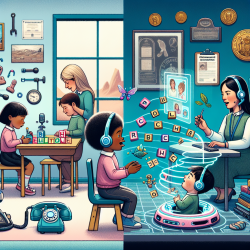The concept of resilience has gained significant traction in recent years, especially within the realms of health services and public health. Often celebrated as a trait that enables individuals to cope with adversity, resilience is increasingly being scrutinized for its limitations and potential drawbacks. A recent critical discussion titled "Resilience is an Adverse Event: A Critical Discussion of Resilience Theory in Health Services Research and Public Health" offers a fresh perspective on this widely accepted paradigm.
The Problem with Resilience as Treatment
Traditionally, resilience has been viewed as an individual trait that allows people to adapt positively to stress and trauma. However, the research suggests that this perspective may be overly simplistic and potentially harmful. The authors argue that framing resilience as a treatment places undue responsibility on individuals, particularly those from marginalized communities, to adapt to systemic and structural discrimination. This approach can inadvertently normalize structural harms and maintain the status quo.
A Shift Toward Holistic Trauma Frameworks
Instead of focusing solely on individual resilience, the research advocates for alternative frameworks that address the root causes of trauma. One such approach is the holistic trauma framework developed by Alvarez and Farinde-Wu. This model emphasizes collective healing and de-individualizes the burden of adapting to violent conditions. By acknowledging multiple ways of being and knowing, this framework promotes epistemic justice and challenges the conditions that facilitate traumatic events.
The Liberation Health Framework
Another promising alternative is the liberation health framework. This approach encourages practitioners to consider multiple levels of violence and trauma—individual, cultural, and institutional—and to engage in social justice alongside their patients. By naming the institutional factors contributing to patients' problems, practitioners are motivated to resist policies that perpetuate inequities.
A Call for Further Research
The authors caution against the overuse and misapplication of resilience frameworks. While resilience can be a useful tool, it's crucial to complement it with approaches that prioritize healing from violence over mere adaptation. Future research should focus on understanding how harm can be mitigated and prevented at both individual and collective levels.
If you're a practitioner looking to improve your skills or conduct further research, consider exploring these alternative frameworks. They offer a more nuanced understanding of resilience and emphasize the importance of addressing structural inequities.
To read the original research paper, please follow this link: Resilience is an Adverse Event: A Critical Discussion of Resilience Theory in Health Services Research and Public Health.










